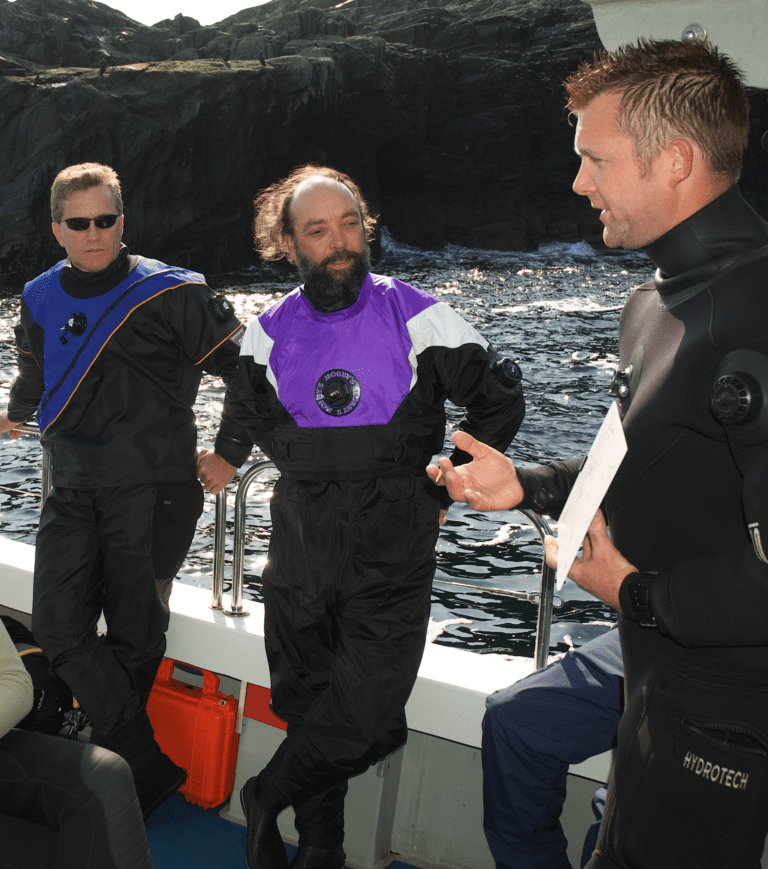Code of conduct
The EUF Divers’ Code of Conduct is designed to encourage good behaviour at dive sites and when diving, and to ensure that divers do not come into conflict with other water users.
 Dive planning:
Dive planning:
- If you lack knowledge of a dive site contact local sources of information.
At the dive site:
- Obtain permission before diving in restricted areas such as harbours, estuaries or private waters. Thank those responsible before you leave and ensure any dues are paid;
- Park sensibly, avoiding obstruction and damage to verges. Use proper car parks and pay parking fees;
- Avoid overcrowding sites and show consideration to other users;
- Keep launching ramps and slipways clear and be economic with use of space;
- Keep the peace. Do not operate compressors, boat and car engines unsociably;
- Do not litter. Close gates. Be careful about fires. Avoid any damage to land or crops;
- Obey special instructions such as National Trust rules, local bylaws and regulations about camping and caravanning;
- Remember our equipment makes divers conspicuous and bad behaviour can result in future restrictions.
In and on the water:
- Make your boats identifiable, this can help rescue agencies and shows you have nothing to hide. Seek advice/permission on launching and follow it;
- Inform the marine authorities or a responsible person of your operational plan and report when it is complete;
- Avoid disturbing wildlife such as seabird or seal colonies;
- Avoid diving in fairways or areas of heavy surface traffic and observe the International Regulations for Preventing Collisions at Sea. Commercial traffic usually has restricted manoeuvring capability;
- Always fly the diving flag when covering diving operations, but not in transit. Do not leave boats unattended whilst diving;
- Do not come into bathing beaches under power, use any special approach lanes and avoid creating unnecessary wash in restricted waterways or moorings;
- Use surface marker buoys when appropriate;
- Respect local bye-laws, regulations and customs.
 On conservation:
On conservation:
- Do not use a spear-gun when scuba diving;
- Collecting marine creatures of any kind is damaging to the environment and often subject to legal control. Take photographs and notes, not specimens.
On wrecks:
- Do not dive on a designated protected wreck site without specific authority. These are generally indicated on charts and marked by buoys or warning notices on the shore nearby;
- Do not disturb anything;
- If you discover a wreck report the position/details to the relevant authorities;
- Be aware that many wrecks involved loss of life and as such can be sensitive areas and deserve respect;
- Diving freedoms stem from responsible diving, behave sensibly, sociably and keep to the EUF Divers’ Code.

